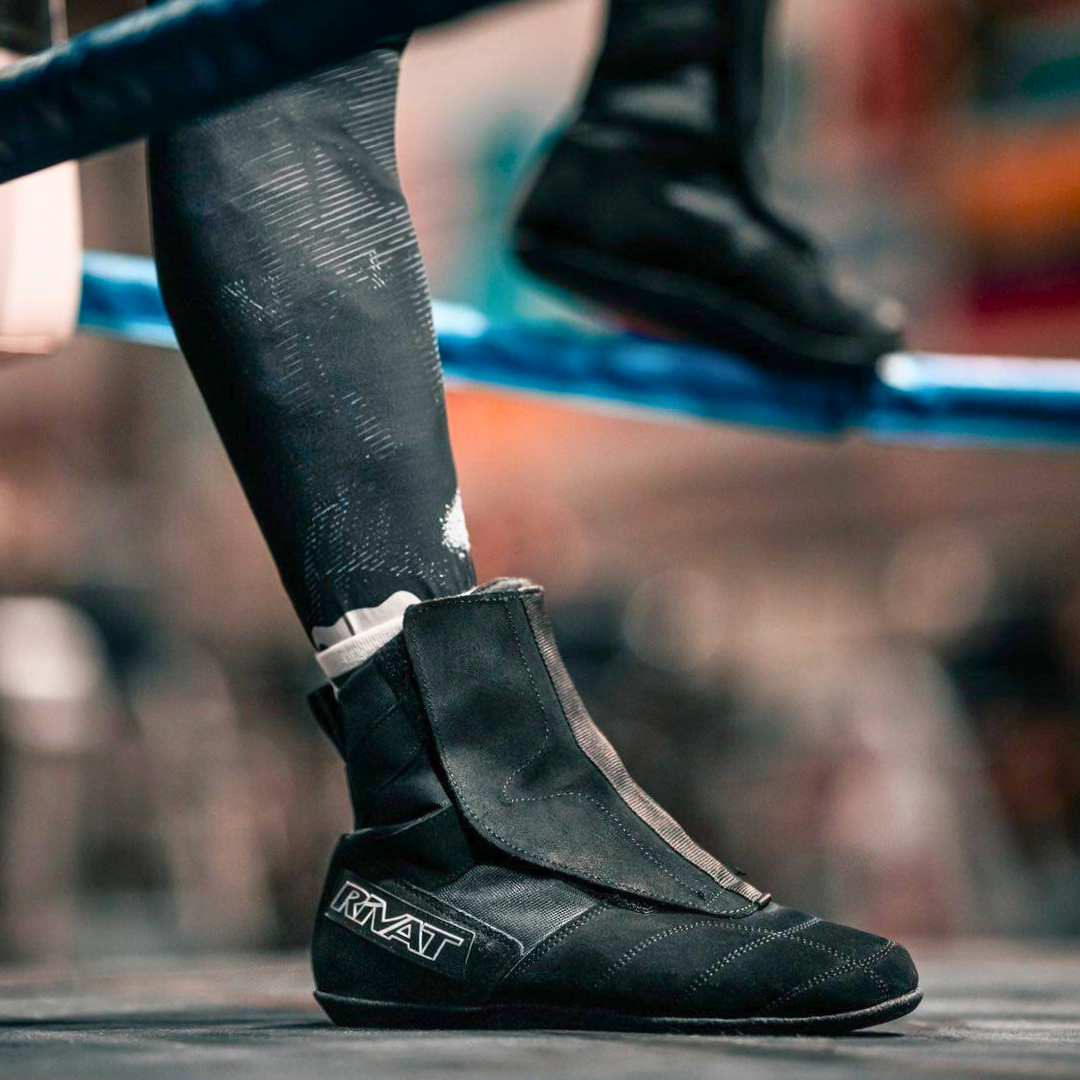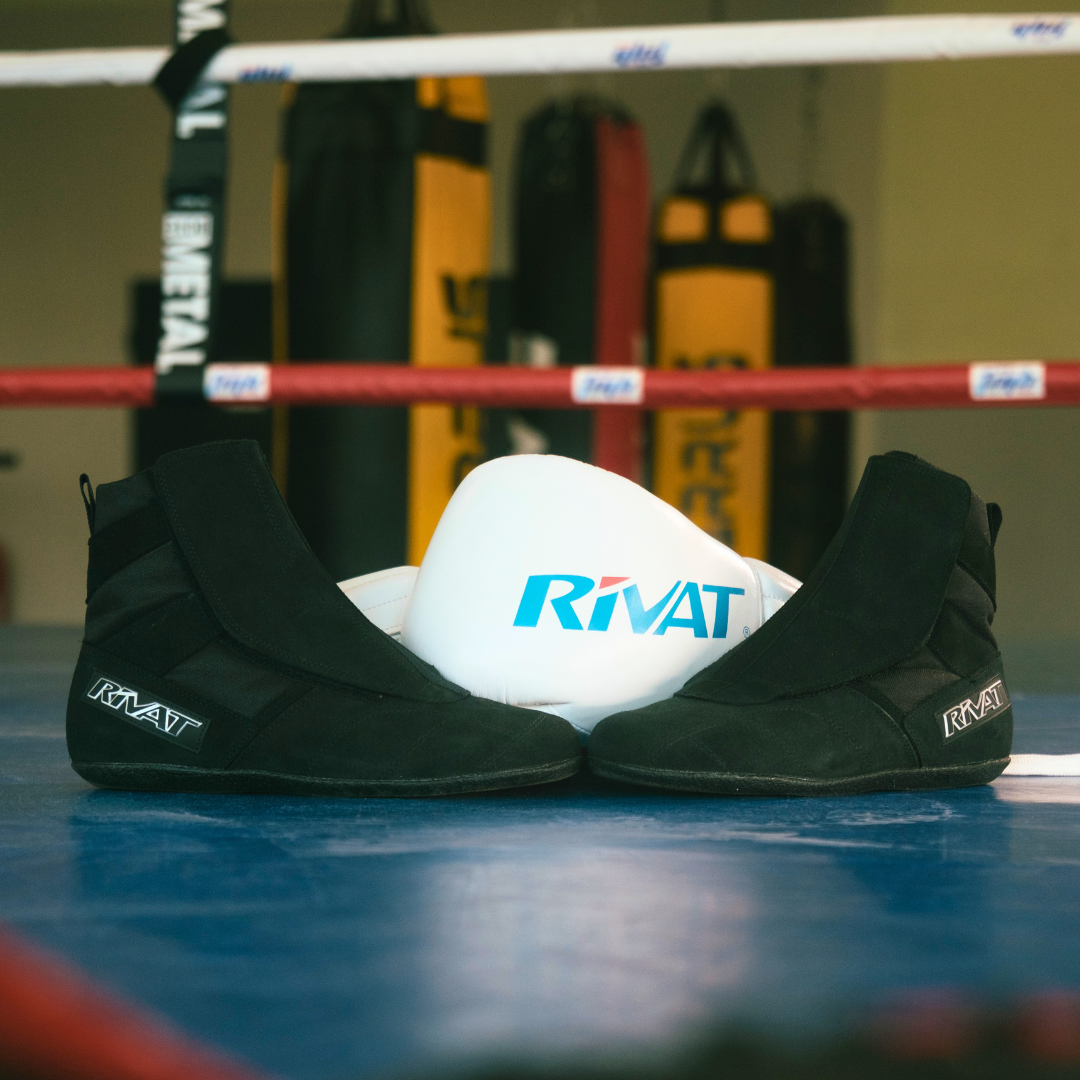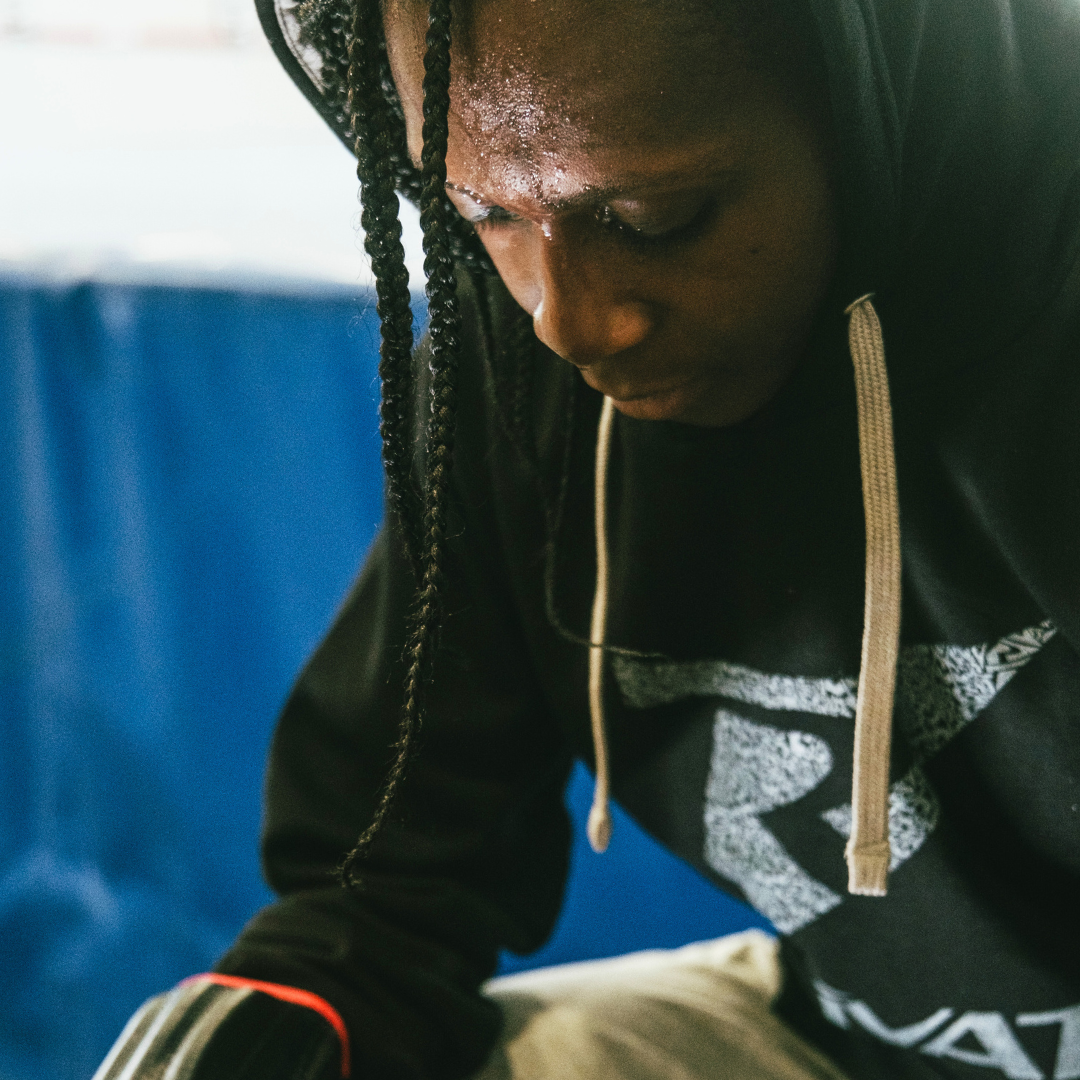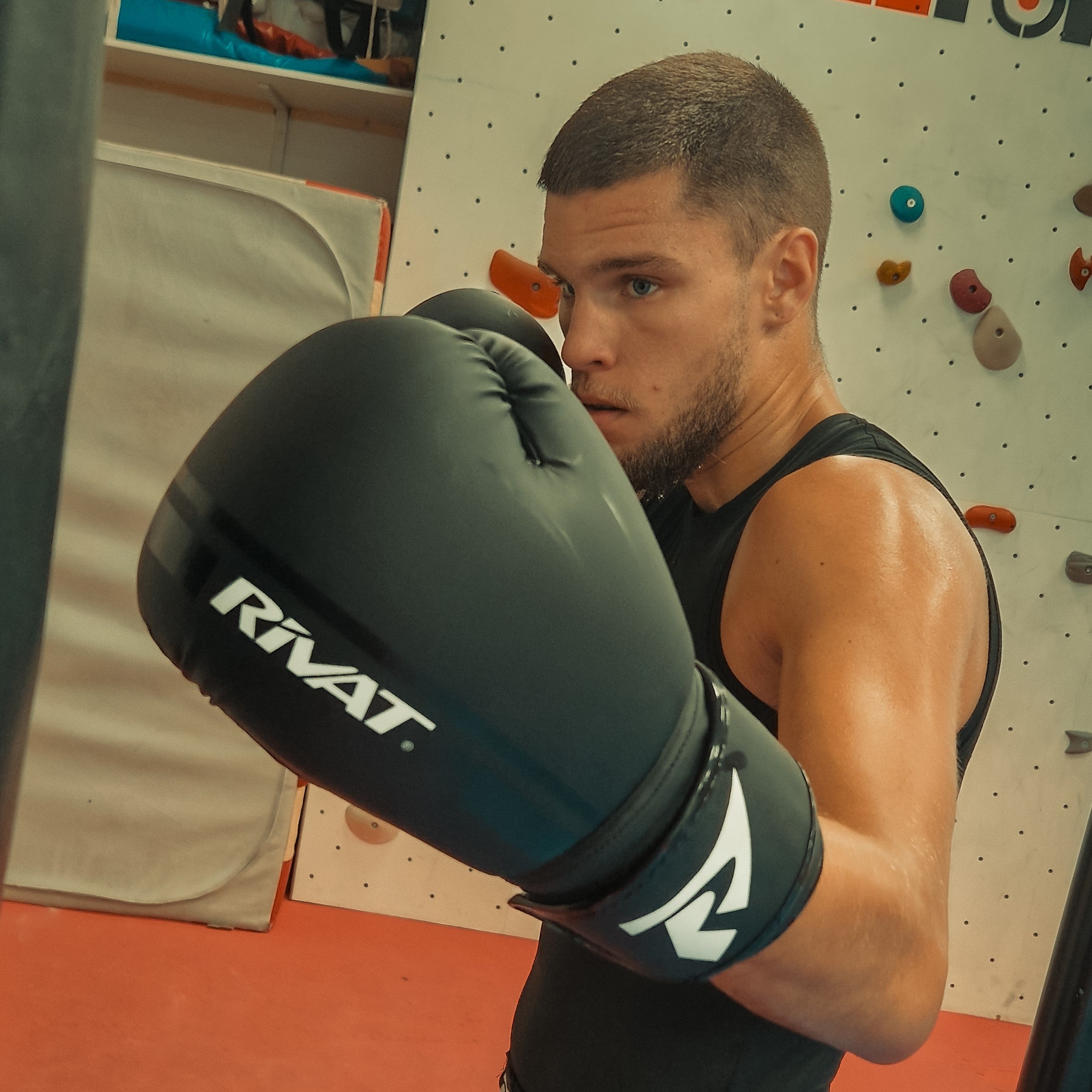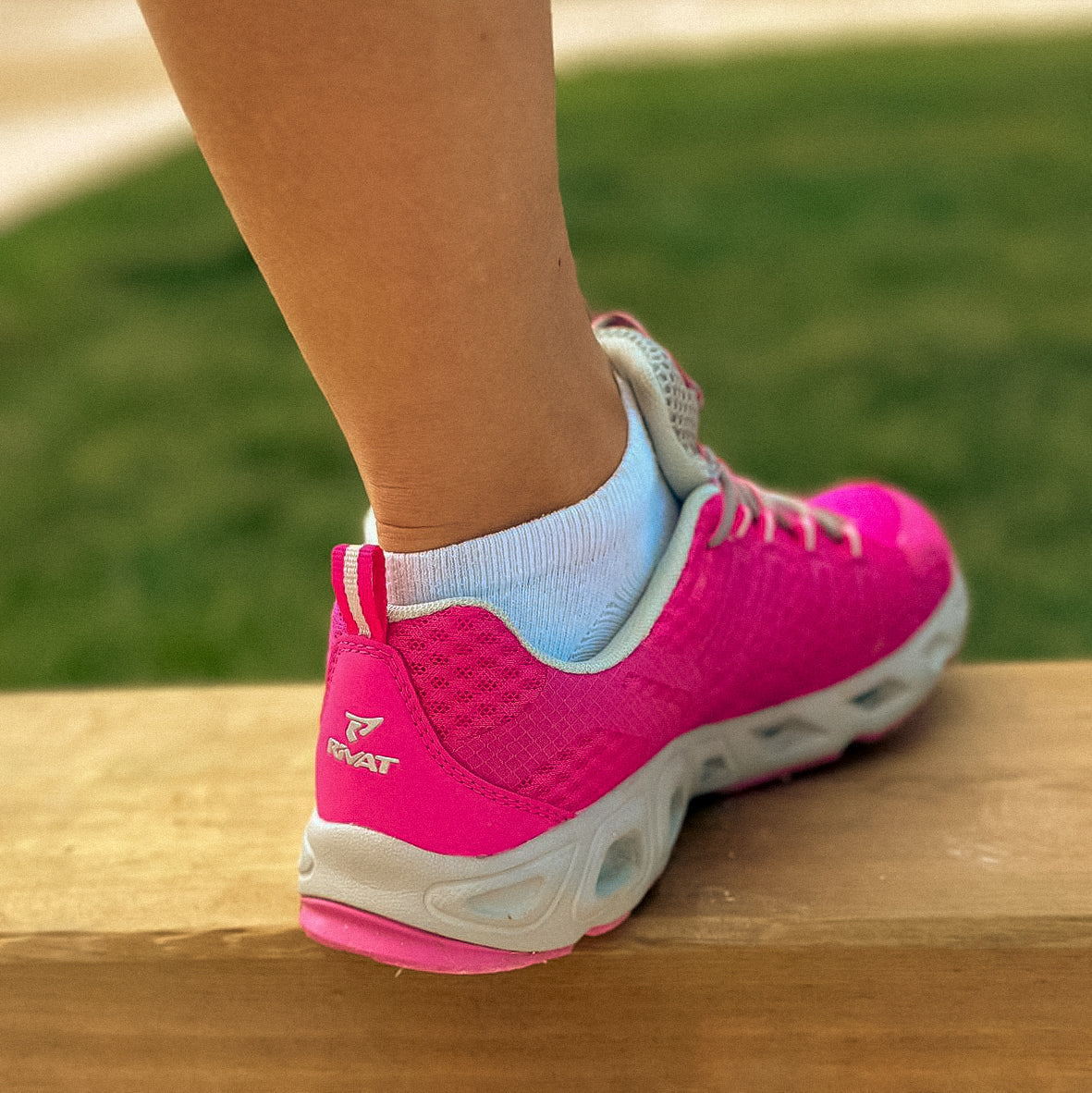1. Importance of the Guard Position
Before diving into the technical details, let's understand why the guard position is so crucial:
- Protection : Good guard protects your vulnerable areas (head, face, torso).
- Preparation : It prepares you to launch attacks or counter.
- Balance : Maintaining good balance allows for better mobility and responsiveness.
2. Steps to Adopting the Guard Position
2.1. Positioning of the Feet
- Spacing : Place your feet shoulder-width apart for a stable base. Your weight should be distributed evenly between both feet.
- Angle : Keep one foot slightly forward (left foot for right-handed people and vice versa for left-handed people). The back foot should be slightly turned outward for better mobility.
- Flexion : Bend your knees slightly to improve stability and flexibility.
2.2. Position of Arms and Hands
- Hands : Raise your hands to face height. The front hand should be slightly higher than the back hand, which is positioned to protect the chin.
- Elbows : Keep your elbows close to your torso to protect your sides and avoid openings.
- Wrists : The wrists should be slightly bent to avoid injury when hitting.
2.3. Head and Eye Position
- Head : Keep your head straight and tilted slightly forward to reduce strike targets. Avoid tilting your head too far forward or back.
- Gaze : Stare at your opponent to anticipate their movements and reactions. Don't look down.
3. Adjustments for Different Techniques
3.1. Preparation for Attack
When you are ready to attack, you can adjust your guard slightly:
- Step Forward : For a direct attack, step forward with your front foot while maintaining balance.
- Lighten the Weight : Reduce the weight on the back foot to allow for quick movements.
3.2. Reaction to an Attack
To defend yourself against an attack:
- Move Feet : Use side or back steps to dodge blows.
- Strengthen Guard : Use your arms to block or deflect attacks while maintaining a stable posture.
4. Exercises to Perfect the Guard Position
4.1. Solo Training
- Shadowboxing : Practice by simulating fights to maintain and adjust your guard.
- Static Position : Hold a guard position for extended periods of time to strengthen your muscles and improve stability.
4.2. Training with a Partner
- Pair Work : Practice with a partner to get used to maintaining guard while reacting to simulated attacks.
- Light Sparring : Engage in light sparring sessions to apply the guard in a real combat situation.
5. Common Mistakes to Avoid
- Hands Too Low : Don't let your hands go down, as this exposes your face to blows.
- Excessive Foot Spacing : Spacing your feet too wide can reduce your mobility and balance.
- Lack of Knee Flexion : Do not keep your legs straight, as this limits your agility.
Conclusion
Adopting the correct guard position is essential for effective French boxing practice. By following these tips and practicing regularly, you can improve your protection, balance, and responsiveness in the ring. Remember, the guard position is the foundation upon which all techniques are built, so take the time to perfect it and make it second nature.

